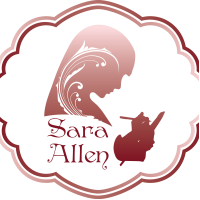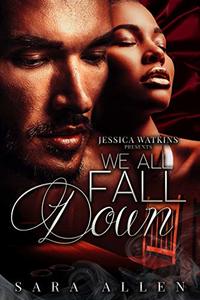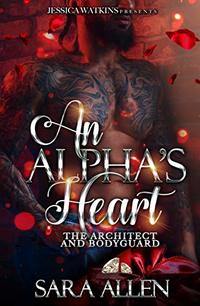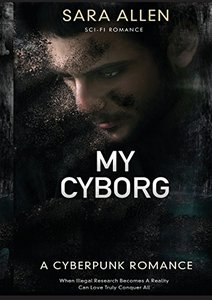Sara Allen Interview Published on: 08, Nov 2017
 Paint us a picture with your words and tell us a little about your hometown and your life as a child. What is one memory you love to revisit?
Paint us a picture with your words and tell us a little about your hometown and your life as a child. What is one memory you love to revisit?
I grew up in London, with Greenwich Park and the River Thames as my playgrounds. I used to walk through the Maritime Museum looking at the ships and Navy memorabilia nearly every Sunday afternoon. I’m not really sure if my love of history started then, or if it was natural that I gravitated to history. One of my earliest memories was learning to read and write. My father taught me, before I began school at age five, and I found it strange that other children didn’t know how to do it. I remember staring at the other children in class learning to write their names, which was already so easy for me.
What were your favourite subjects in school? Were you good at English?My favourite subject in school wasn’t English, it was Mathematics. I loved the logic and the working out. Mathematics was something that I could look at and get my teeth into. My other favourite subject was Art, which is still an area I dabble in even now. I love creating something from a plain white emptiness into a swirl of colour and imagery. I usually turn to art when I have too many ideas, or if I’m not sure where I want my stories to go.
What do you think your biggest writing success has been?To keep going, even when disheartened and fed up. The drive to continue putting the words on the pages, to continue with the research and the plot outlines, and all the hundreds of other little things that come about when a person takes up writing. It hasn’t been easy. The hardest thing is finding your voice, deciding what stories you want to write, and how they will flow over the page. So I’d have to say, my biggest success as a writer is getting up every day and sitting in front of that keyboard and tapping on those keys.
How long were you a part-time writer before you became a full one? What finally prompted you to make the switch?I published my first book in 2015, and I’d been writing for a number of years before that, having taken a creative writing course and enjoying it so much. I had a number of short stories, as well as unfinished pieces that I’d worked on and stored in a file hoping to one day finish one of them, which I did, but still continued teaching and writing when I had time. I decided to write full time in December 2016, after I stopped teaching ESL, English as a Second Language to adults. I was spending so much time as a Teaching manager, teacher, supervisor and eLearning Manager, that I barely had time to write, often arriving home late to my family, and trying to spend an hour writing when my mind was burnt out. When I started working from home at the weekends, I knew I had to stop. Best move I ever made!!!
Could you tell us a little about the first book you published and how you've changed as a person or as a writer since then?Beautiful Strangers was my first published book, and it was a first in many ways. I learnt so many things about myself as a writer when I had that manuscript published, most importantly, to hold on to the dream that I originally had when I wrote it. After publishing my first book, I wanted to add other elements to my stories, so I began reading a lot of craft books, and still do. I began weaving more layers into my stories, especially at the outline stage.
What kind of process did you go through, choosing the names for your characters for your book "Princess Aminah"? What was the research you did concerning the geography and the cultures of the places you wrote about?The idea for Princess Aminah, characters, names and back-stories, came about when I was taking my degree in Art & Archaeology of the Middle East. The abandoned palaces and the Thousand and One Nights imagery that the history of the Middle East conjures up, all went into making the story what it was. The Caliphate Period in Spain is one of the most romantic periods of ancient Islamic Europe that it begs to be included in fiction.
Are there some underrepresented or controversial topics you bring up in "Beautiful Strangers"? If so, could you discuss some of them?For me, the most controversial topic I raise in Beautiful Strangers, is the assumption that graduates with college degrees are able to fall into employment as soon as they walk out of the university’s doors. It’s such a misconception. Trying to survive and find a place in the working world, people, not only those who went through University, may see it that they have no option but the escort industry, which isn’t a kind and genteel place for unwary women. Those were two of the topics that concerned me when I wrote the story, and also that it doesn’t matter where you came from, where your path led you, or the circumstances that shaped you, a person is still worthy despite being dragged through the gutters.
Just like Pearl (from "Beautiful Strangers"), a lot of students fresh out of college have a lot of trouble finding jobs in their field of interest. What are some reasons you think that is? Did you have any trouble finding a job?I think that when a person enters college to study, it’s usually because they have an interest in that field and want to make a career out of it. Some careers are blocked, filled with overly qualified people, or just difficult to get into. Some study paths don’t yield the career that is expected, or the job market is flooded. Elitism plays a part in some career paths and in others, the dedicational requirement isn’t for everyone. Many people end up working in fields that have nothing to do with their initial field of study, and the thought of re-education is daunting and expensive. I didn’t work in the field I studied for, for a number of reasons, but I have made use of my education through writing, as it helps me organise my research. My love of historical events and timelines and the cultures and peoples that no longer exist, I’m able to make use of. So, despite not working in the field, it wasn’t a wasted journey!
Your character Sophie Morrison in "Sophie's Choice" is a very independent and ambitious woman with a lot of integrity. Where, or from who did you find the inspiration for her character? Are there any sides to her that you relate to as well?Sophie was one of my dream characters, unlike anyone I knew, and someone I’d love to be myself. She refused to break, or bend and was so determined to go her own way, even when writing the story, it was almost as though she took over and wanted to tell the story herself (I know people don’t understand this when a writer speaks about their characters in this way, but they have personalities!). I felt sorry for Cameron on occasion, but their characters meshed so smoothly, that it was a pleasure to write about them both. Perhaps I may visit them again in the future…
What brought forth the idea for your book "Preacher: The Haskins Brothers"? What was the most memorable part of writing this book?The idea for Preacher was a strange one. I asked myself a question: Who is a person totally different from their outward appearance or upbringing. And the answer was a preachers’ son. Then the song by Dusty Springfield, along with a series called Preacher, who’s companions are less than normal, one of which is a zombie, I think, and the story spun off from there. One of the most memorable parts of writing the story, was the struggle. The struggle to tell the story as it should be told, to explain the internal drive of the characters in such a way that it gave the story the life I saw in my mind. To be able to show Preacher in all his roles; the loving older brother, the reluctant gangster whose integrity made him stand out, and the man who loved a woman he didn’t want to lose but who would inevitably end up doing.
You say you love writing twists in stories and surprising your readers. Which plot twist in any of your books are you most proud of?In Princess Aminah, she’s confronted with a guard, who seems overly pushy, but she’s learnt to avoid the limelight, and shuns him. How that twist unravels is one of my favourites. So far! Would you say you are musically talented? Were you ever forced to learn an instrument you didn't like when you were younger (hello, Recorder!)?
Music… No!!! I don’t have the peaceful mind that it takes to play an instrument, I’m too impatient. My mind wants to do other things, and I think a person needs to have a quiet space in their mind to play an instrument and let the music flow outwards. That is not me!
How do you balance writing so many different types of genres?I love writing different genres. We as human beings, are multi-faceted, with so many different sides that make up our characters. Some things can change us in the space of a second, into someone we don’t recognise, yet it’s still us underneath. This is why I write different genres, to explore all my different sides. I may find I’m better at one genre than the other, and some, not at all. But I’d like to weave elements of other genres into each story I write.
Share Sara Allen's interview
Sara Allen was born in London, U.K. with Greenwich Park and the River Thames as her playgrounds in the mid-1960’s. Her parents had emigrated from Portland in Jamaica. Her father taught her reading and writing, before she began school at a tender age of five, and found it strange that other children didn’t know how to do it. She is an expert writer of various romance genres. Beautiful Strangers was her first published book in 2015, and for her, it was a first in many ways as she learned many things about herself as a writer. We wish there are much more to come.
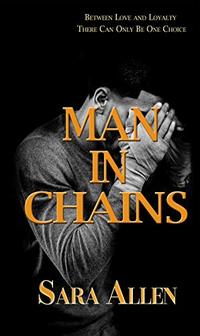 Man In Chains
Genre: Contemporary Romance, New Adult Romance, Romance, Women's Fiction, African American Interest
Man In Chains
Genre: Contemporary Romance, New Adult Romance, Romance, Women's Fiction, African American Interest
